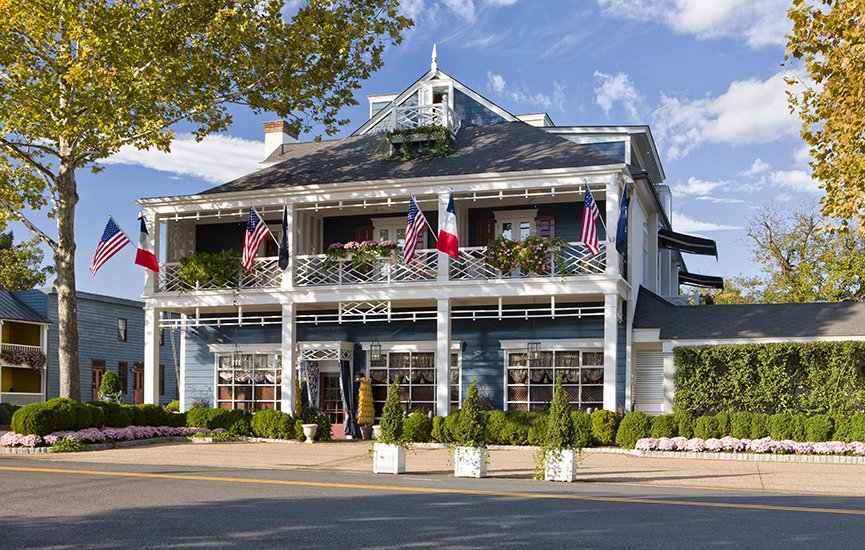The most distinguishing aspect of a Relais & Châteaux hotel is its personality. The hotels are private refuges for those who want the individuality of a bed and breakfast but with the effortless service, attention to detail and gastronomic excellence that very few independent operators can replicate. They are comfortable, not fastidious; luxurious without being clichéd. The luxury is in the uniqueness and high quality of the experience.

The 63-year-old association of more than 530 independent luxury hotels has become a standard bearer for excellence in the hospitality industry, just as Michelin has for the culinary world. “It started with seven properties in an era when, if you were part of a certain set, you were reluctant to stay in hotels,” says Patrick O’Connell, the two-Michelin-starred chef/owner of The Inn at Little Washington in Virginia and president of Relais & Châteaux North America. “Hotels simply didn’t offer the style of accommodation that was going to make you happy.”

Over the years the Relais & Châteaux logo, a fleur-de-lis wrapped in butterfly wings to signify the freedom of discovery, became one of the most prestigious badges of honor for a hotel. Worth talked with O’Connell about Relais & Châteaux’s role in the evolution—or perhaps the preservation—of luxury in hospitality.
RELAIS & CHÂTEAUX MAKES INDIVIDUALITY A POINT OF DISTINCTION. WHY SHOULD THAT BE IMPORTANT?
When you stay in a Relais & Châteaux, you have a sense that you’re learning about the personalities behind the hotel and their tastes, their passions. Many of the people coming to our profession as hoteliers do so having been successful in different walks of life. If they have a hobby or they collect antique cars or are passionate about gardening, that’s evidenced throughout the property. You know you’re going to have an authentic experience that represents the region you’re in, that it’s going to be personal. In many of the hotels, it is just like visiting a wealthy family and being a house guest. It’s about the experience you have and how it makes you feel.
IT’S EXPENSIVE TO RUN A RELAIS & CHÂTEAUX PROPERTY. WHY WOULD SOMEONE WANT TO OPERATE SUCH A COSTLY HOTEL?
Our average number of rooms worldwide is 24. Someone who just wants to maximize the return on their investment is probably not going to open a 24-room hotel because it’s generally not cost effective. But many of our members own or have ended up inheriting a property—perhaps a castle or a magnificent chateau—that is almost impossible to maintain without a source of income. Operating as a hotel makes it viable for a property such as a castle or a chateau to be maintained. You can have a team of gardeners, run a kitchen with a real chef, have a household staff. Relais & Châteaux has helped protect and preserve not only these magnificent pieces of architecture and history, but it’s also preserved a style of living.

CAN YOU GIVE ME AN EXAMPLE OF THAT HERE IN NORTH AMERICA?
The Ivy Hotel in Baltimore—you get a sense that it was a home and it’s been brought back to life. That is a classic example of a building that might have been torn down. Someone had even suggested turning it into a conference center. Now it’s preserved in a way that keeps its integrity, but has usefulness and gives you a sense of visiting a family who is in that part of the city.
WHICH BRINGS US BACK TO INDIVIDUALITY. WHY DOES THAT MATTER MORE THAN JUST SUMPTUOUS CREATURE COMFORTS?
There have been situations where people of great wealth wanted the best of everything and they spent lavish amounts of money either refurbishing an existing palatial piece of architecture or building one. But when our inspectors went to evaluate it, it felt cold or it felt unwelcoming. Or perhaps the service team felt pretentious or awkward. They don’t get accepted into Relais. With us, no matter what you build or no matter how much money you spend in building it, it’s about how the guest feels.
IN RECENT YEARS THERE HAS BEEN A PROLIFERATION OF LUXURY HOTEL COLLECTIONS, SUCH AS MARRIOTT’S AUTOGRAPH COLLECTION, HILTON’S CURIO COLLECTION AND STARWOOD’S TRIBUTE PORTFOLIO. WHAT’S YOUR TAKE ON THAT TREND?
What the movement demonstrates is the desperate need and desire on the part of the traveling public to feel like a person and not like a statistic or a number. There is something about a cookie-cutter bad motel/hotel situation that can leave you rather depressed. I often feel that there’s almost an industrial, dehumanizing quality about the way they’re put together and the way you’re made to feel. Even if one of the big chains comes up with a concept to appeal to the weary traveler who’s had enough of the standardized treatment, they can’t help but end up creating policies and formulas and, again, a higher level of a manufactured artificial experience, usually because it isn’t tailored to an individual guest’s needs and because there isn’t personality behind it. A human connection is what’s lacking in the clever, stylish and sometimes commendable boutique concepts that other hotel groups are spinning off.









